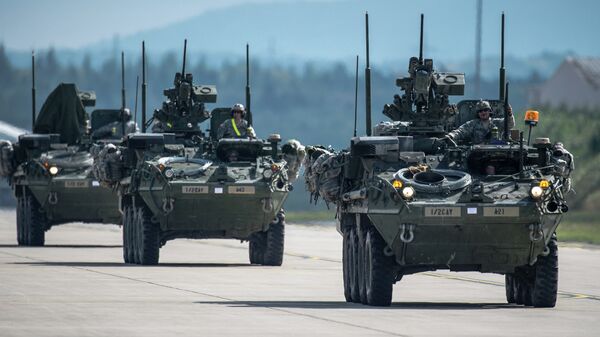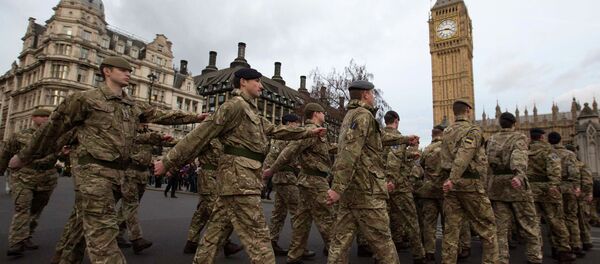“Our smaller military really, truly can’t do everything that it has promised in the past, and in some cases probably over-promised,” Eaglen said of the impact of declined US defense spending on NATO.
“I don’t think the message was sinking in until now, when our friends and partners are charging the hill and they turn around and we’re not there,” she added.
Eaglen is currently a fellow at the American Enterprise Institute think tank, but worked in government as a defense advisor at the Defense Department as well as in the US Senate and House of Representatives.
For years, US leadership has encouraged NATO partners to increase their defense spending levels, but only four of the allies currently spend the required two percent of GDP on defense.
The United States still outspends all other NATO allies in total dollar amounts, according to NATO’s official figures.
US defense spending peaked at approximately $879 billion in 2011, according to government statistics. The 2016 US budget will likely provide a base defense budget of $523 billion with approximately $90 billion in additional contingency funds, according to statements from members of US Congress involved in negotiating the budget.



